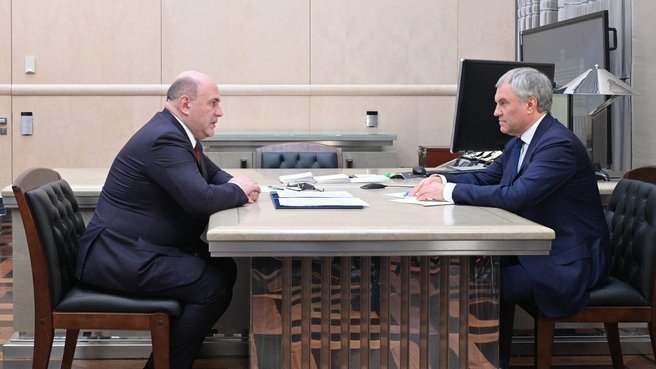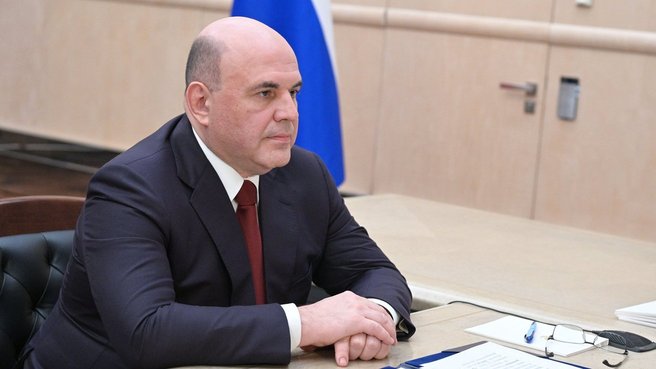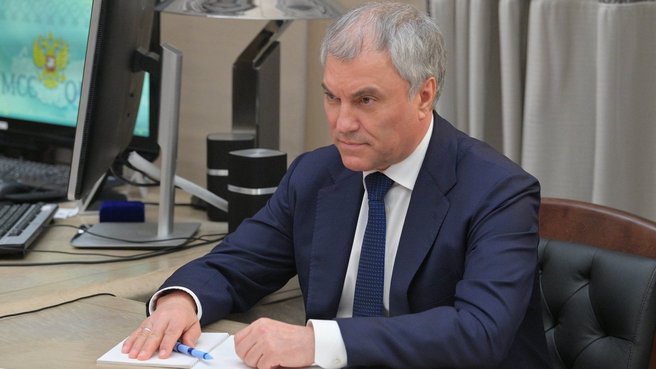The meeting took place ahead of the Government’s annual report at the State Duma.
Excerpts from the transcript:
Mikhail Mishustin: Mr Volodin,
Tomorrow, we will present the Government’s report at the State Duma. We have thoroughly prepared for this. We met with representatives from all State Duma parliamentary parties, and my deputies, ministers, and heads of federal executive bodies participated in relevant committee sessions to prepare for the report.
I want to note that our discussions mainly focused on the tasks outlined in the President’s Address to the Federal Assembly.
We spoke about national development goals and projects, with a particular emphasis on achieving industrial, financial, technological, and economic sovereignty. We also discussed the steps needed to accomplish these goals. All the discussions were constructive and despite occasional disagreements and diverse perspectives, which are inherent in any such process, we consistently managed to find effective solutions, which then materialise into draft laws.
Last year, the Government submitted 300 draft laws to the Duma, and 200 of them have already been enacted into federal laws. This is a highly active and productive process. We have cultivated effective and constructive relations between parliamentarians and Government officials, fostering a conducive environment for cooperation. We consistently acknowledge the importance of parliamentary oversight, which is absolutely normal and correct.
I want to thank you for the constructive mechanism that has evolved in the cooperation between the State Duma and the Government.
Vyacheslav Volodin: Mr Mishustin, you were right in saying that we have finished preparing for the Government’s report. It will be delivered tomorrow. It must be said that these preparations were very important for us. First, we have reached a different level of relations with the Government recently. The important thing is that both the deputies and the Government are now responsible for the final result of the decisions they make. This means that the quality of their decisions will be much better.
Therefore, our efforts to establish this dialogue – when ministers spent all of their time in the State Duma for over a month and held meetings at the related committees, and you also met with the Duma factions – have produced a tremendous effect. Based on people’s requests to us, these conversations help us reach decisions.
While engaged in this dialogue, we collected issues, systematised them, and analysed problems that needed to be solved. About 14,000 requests came in. People know that the Duma is preparing for the Government report. The deputies have sent 309 written questions to the Government. And, of course, it is important for us to work together to address them. It must be noted that there are key topics that show where we work effectively and where we do not, or how much the regional authorities have lagged behind.
We receive many questions concerning housing and utilities. While these issues fall under the purview of regional authorities, we observe varying degrees of success in how the regions are managing them. Therefore, it is important for us to reach decisions that will help the regions while creating additional opportunities to solve people’s problems.
There is a topic that comes up quite often in the requests we get from the public. We see it, we have analysed it, and we think it would be right to raise it. I am referring to the shortage of healthcare employees. This problem does exist and we, for our part, must also help the regions. They have the relevant powers, but we see that they are unable to solve this problem on their own.
So, it is important to review the work that was done last year, and there were certainly some outstanding achievements. We all note that Russia's economic development goals are being reached as part of the effort to implement the Presidential Address [to the Federal Assembly]. But at the same time, we live in the contemporary reality. Of course, we would like to have a glimpse of the future to know how various issues will be addressed. For this reason, the discussion is sure to focus not only on the results but also on today’s matters and prospects for the future.















